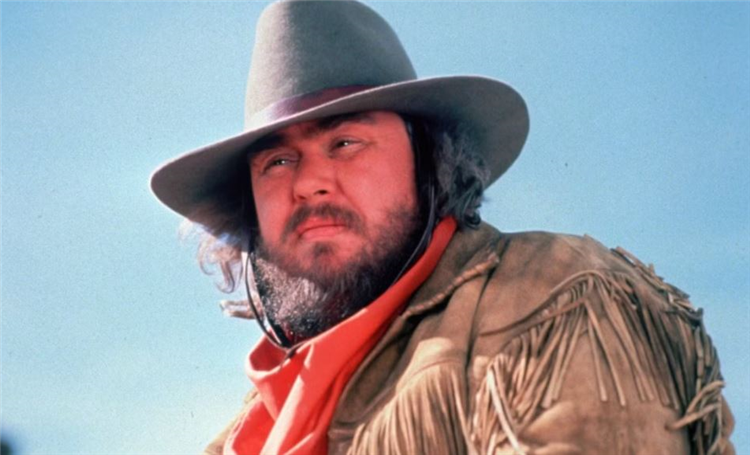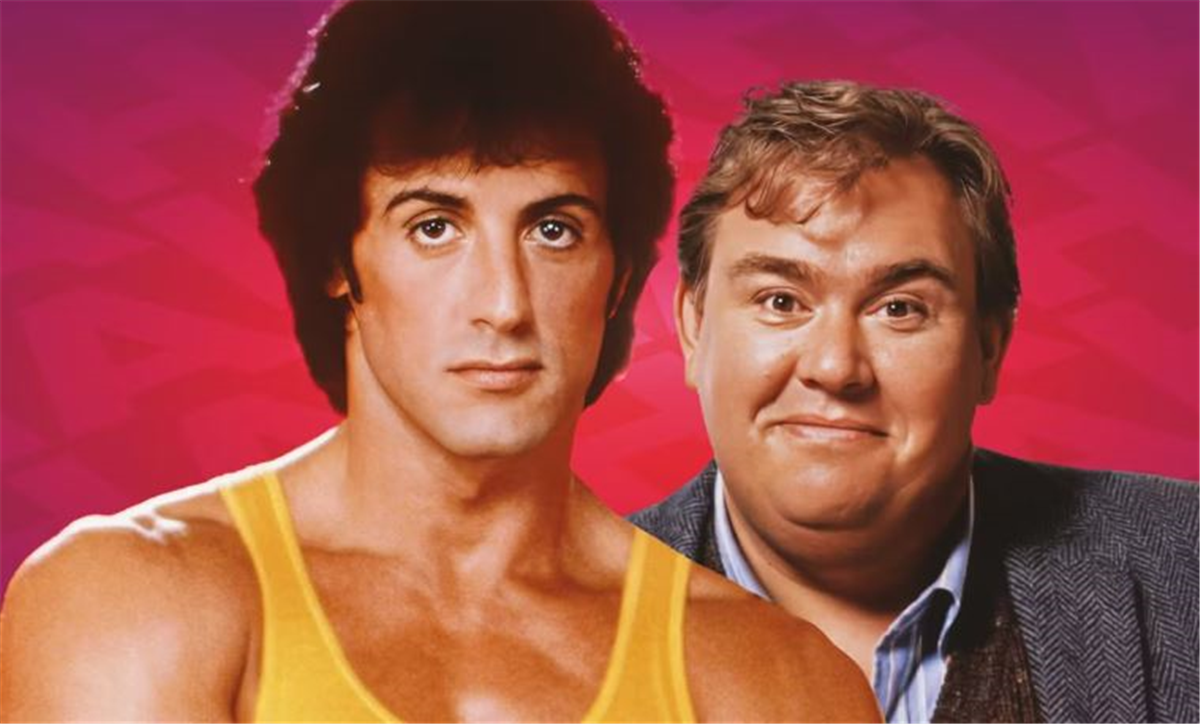For decades, Sylvester Stallone has enjoyed critical acclaim as an underdog fighter in the Rocky movie franchise and amassed incredible box office receipts as an action star with the Rambo franchise. His recent small-screen hit Tulsa King successfully balanced his tough guy image with his natural sense of humor as a mobster out of touch with the times. Comedy was never Stallone’s strong suit, which is why he was open to working with a risk-taking filmmaker like John Hughes in the early ‘90s.
In 1990, Stallone sought to follow in the footsteps of his friendly rival Arnold Schwarzenegger, following his transition from action to the Ivan Reitman-helmed comedy hits such as Twins and Kindergarten Cop. An admirer of Hughes’ filmography, he signed on to work with The Breakfast Club director on a feuding neighbors comedy titled Bartholomew Vs. Neff. In addition to Stallone, Hughes was set to re-team with close friend and frequent collaborator John Candy in the hopes of recapturing the buddy movie magic they made with the holiday classic Planes, Trains and Automobiles.
Sylvester Stallone and John Candy Were Set To Play Feuding Chicago Neighbors

Of any actor who ever had the opportunity to be directed by Hughes, Candy shared the closest friendship with the ex-National Lampoon writer. As documented in Kurt Honeycutt’s book John Hughes: A Life in Film, the pair had a common interest in comedic styles, music, and most importantly, family values. As a result, Candy became Hughes’ muse for adult comedies, just as Molly Ringwald was for his teen classics.
Unlike Candy’s past directors, Hughes found the perfect balance between his jolly nature and his underlying sensitivity in the role of traveling salesman Del Griffith in Planes, Trains and Automobiles. Additionally, Candy’s carefree personality was the perfect contrast to Steve Martin’s uptight ad executive Neal Page. These traits had the potential to apply to a pairing with the macho-driven Stallone, who shared a similar chemistry to Kurt Russell’s loose-screwed cop in 1989’s Tango & Cash.
Set up at Stallone’s home studio Carolco Pictures, Bartholomew Vs. Neff would have seen the star of Rocky play an ex-baseball player whose friendship with Chicago neighbor Candy as a corporate banker devolves into madness and hatred. Like Hughes’ previous projects with Planes and The Great Outdoors, Bartholomew Vs. Neff would share similar themes about class conflict and polar opposites struggling to get along. As his other comedic roles in 1984’s Rhinestone, 1991’s Oscar, and 1992’s Stop! Or My Mom Will Shoot were simply over-exaggerations of his established action-hero persona, Stallone believed that Hughes had the potential to capture his humorous side by playing himself. Not only did Hughes change the perception of Candy as a heavyset comedian, but he also took a risk by putting the smart-aleck talents of child actor Macaulay Culkin on full display in the biggest hit of his career, Home Alone.
John Candy Was Forced to Make His Final Movie Under Contact

Despite Carolco putting out a massive billboard at Cannes, Bartholomew Vs. Neff was set back by life and career circumstances for Stallone, Candy, and Hughes. The latter’s career was forever altered by the blockbuster success of Home Alone as Fox executives wanted a sequel right away. Additionally, Hughes’ final directorial effort, Curly Sue, failed to connect with audiences, and as he struggled to get other ambitious projects to the screen, he slowly stepped away from Hollywood by the end of the ‘90s.
Meanwhile, Stallone’s underperforming comedies made it clear that the action genre was where he belonged, rebounding with 1993’s Cliffhanger. Sadly for Candy, a rift with Hughes ended their successful partnership. According to director Chris Columbus, the comedian was frustrated after passing up backend profits for his Home Alone cameo and vented frustration during production on the Hughes-produced Only the Lonely. Subsequent Hughes projects intended for Candy were passed up frequently. But with a contractual obligation with Carolco that needed to be fulfilled, Candy signed on to what would be his final film role: the comedy western Wagons East, where the comedian suffered a fatal heart attack at age 43.
Though he dominated in the boxing ring, the jungle, and the streets of Tulsa, Stallone never conquered comedy, nor did he ever find the right comedic dance partner as Schwarzenegger did with Danny DeVito in Twins. A potential collaboration with Hughes could have given the global action star a quirky but relatable character to bounce off of Candy’s lovable blue-collar charm. As he still has not found that comedic hit to this date, it may not be too late for Stallone to touch on the feuding neighbors concept if he were to team with Schwarzenegger on a Grumpy Old Men reboot.
